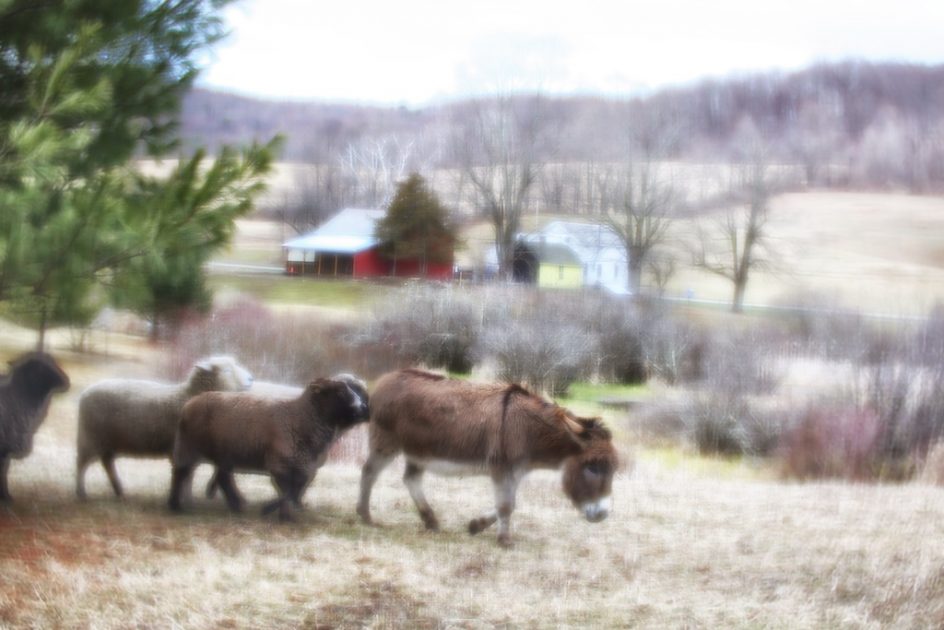
As we rush to transform pets and animals into human-like creatures with our intelligence, emotions and values, we are losing sight of what animals are really like. We shroud them in our myths and needs, we seek to turn them into varying versions of us.
It’s not enough for dogs to be smart, they must be brilliant, wiser than we ever imagined. Animals must now foresee death, spot cancer, check blood sugar, give us 24/7 emotional support, on the ground, in the air, on vacation. We want them to possess unrecognized depths of emotion and consciousness.
It is not enough that we accept them as the wonderful creatures they are, they must be like us, the most conflicted and tormented and violent species on the earth. Do we hate them this much?
I love animals because they are so different from us, but more and more people are insisting that animals are just like us.
Lucky Cooke doesn’t think they are just like us, and unlike millions of people running their mouths on social media, she knows something about them
Cooke is a filmmaker and National Geographic Explorer with a masters degree in zoology from The University of Oxford. She is also the founder and President of the Sloth Appreciation Society, which now has about 10,000. Once they receive my check, there will be 10,001.
She has written the most wonderful book,
it’s called “The Truth About Animals: A Menagerie Of The Misunderstood.” I believe it is not an exaggeration to say that for me, this book may be one the best animal books, if not the best, ever written.
Cooke has gathered together the biggest misconceptions, mistakes and myths we have created about animals, from Aristotle to Walt Disney to your Uncle Harry, and created her own “menagerie of the misunderstood.” Don’t look for sappy rescue stories here, you will learn an awful lot about animals, and you will learn a lot about how much you don’t know.
We are losing track of what animals are actually like, seeing them instead as we need to see them. We project all of our fantasies and needs onto them. We cling to our myths about them, even as we drift farther and farther from the truth about them. Cooke is profoundly knowledgeable, her book is as refreshing as it is urgently necessary.
In our urbanized and over-developed world, very few people actually get to see the animals Lucky Cooke is writing about any longer, we have driven them out of our habitats and out of our lives. Rather than learn about animals, we increasingly exploit them, increasingly their only work and purpose is to make us feel good about ourselves.
The animals the poachers and developers and greedy corporatists and animal rights myopics don’t get will soon fall prey to climate change and the animal rights movement, which is spending millions of donated dollars to take animals away from people and drive them into oblivion.
Most animal books are either sappy or pandering. How Spot rescued me, and I rescued him. Or How My Border Collie learned to speak French and quote the Encyclopedia Brittanica. (And why he was almost certainly abused.)
Cooke is a myth popper, she takes an exhaustive knowledge of medieval animal writing to trace or common views of animals from the silly myths about them to why these myths continue to foster great ignorance about what they are actually like.
It turns out sloths are not lazy, but quite efficient. Penguins are not loyal symbols of family structure, they are quite often unfaithful prostitutes. Hyenas are not cowardly, bats are not vampires in general and vultures are noble and necessary creatures.
Cooke has the advantage not only of being especially knowledgeable. but a gifted and very funny writer. Her essays on beavers and their defensive testicles is a classic. But the wonders never cease in her writing.
We humans may be intolerant and resistant to change, but Penguins have been embracing same-sex partnerships forever. And Moose, who have a tendency to get drunk on certain plants and go on hallucinogenic drug trips.
“When seeking to understand animals,” writes Cooke, “context is key. We have a habit of viewing the animal kingdom through the prism of our own experiences, our own rather narrow existence. The sloths arboreal lifestyle is sufficiently extraterrestrial to make it one of the world’s most misunderstood creatures, but it is by no means along in this category. Life takes a glorious myriad of alien forms, and even the simplest require complex understanding..”
She challenges us to open our minds to the true stories of real animals and discover the truth about them. You will never look at Penguins in the same way when you read about their sex lives and penchant for prostitution.
This is a promise on which Luce Cooke delivers, again and again, from the Eel to the Beaver to the Sloth, Hyena, Vulture, Bat, Frog, Hippo, Moose, Panda, Penguin, Chimpanzee. Each animal has its own myth, each has its own true. And she is funny, there is nothing hectoring or pompous in the book.
The New York Carriage Horses are, to me the most timely argument for Cooke’s message (OK, mine too).
Many animal lovers would rather see these wonderful horses dead or imprisoned in preserves than do their light work amongst people who love them. The reason for this is that the people arguing that work for these animals is cruel know nothing about them.
Work for carriage horses is essential to their health and survival, and they love doing it. The truth might just save their lives.
It is important that we animal lover stop trying to turn out pets and all the animals of the world into us. Look what a mess we have made of the world? Do we really want them to be like us? And get greedy and arrogant and violent and unhappy?
Truth doesn’t matter to a lot of people these days, and we are losing a grip on what it even means, but it is out there if we are willing to go and find it. That is what Cooke has done. I doubt there is a single person reading this review who would not love reading The Truth About Animals.

